Purpose
The GGA Grower Group Benchmark App is about detecting ‘red flags’ early. The app aims to provide members and GGA with a diagnostic process to gather baseline, then yearly data to measure the functionality, systems, processes, governance, resourcing, development needs and challenges of grower groups in WA.
At a group level, Boards are empowered with holistic information about their group and the wider network. Benchmarking can reveal blind-spots, identify issues, risks and threats early. Empowered with benchmarking information, the Board of a grower group is better-informed to make strategic decisions and take proactive action for the welfare of their group.
At a network level, the aggregated data from the network is the only formal diagnostic mechanism GGA has to identify, and then act on common challenges, trends, issues, threats and risks being faced through the network and provide a business case to initiate pro-active initiatives in the interests of the network. Via groups engaging in benchmarking, GGA is better able to support members by identifying macro-systemic issues. The benchmarking process extends beyond the reach of our annual member survey [which only monitors immediate operational training needs] enabling GGA to build groups’ capability, and capacity in a systematic, strategic way.
[Definition: Benchmarking is the process of comparing an organisation’s processes, performance metrics, and practices to those of industry leaders or even best practices from other industries. This helps organisations identify areas where they can improve, set performance goals, and develop strategies to achieve those goals].
Investment and access
The GGA Benchmarking App tool was developed carefully over two years with an investment exceeding $53,000.
GGA commissioned independent external specialist consultants to work with six grower groups to test and build the app. The app has been fully developed and live since September 2022, managed by an independent third party for member data confidentiality and security, with exclusive, free access by GGA voting member grower groups with a data-entry support helpline service provided.
To access the app, eligible grower groups must be logged into the GGA website to access the ‘restricted resources’ section of the GGA website. Here, members are supported with tutorials on how to login and how to use the benchmarking app.
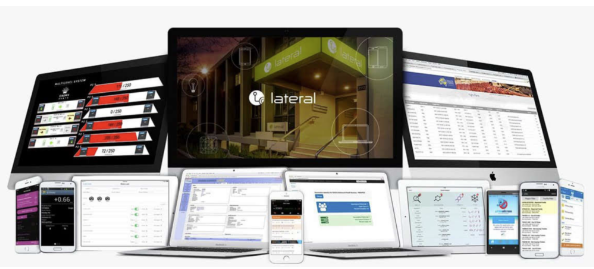
Key Benefits
Grower Group level
Grower groups operate independently and are typically governed by members whom have experience limited to their own grower group. Without relativity, it’s difficult to gauge performance. The Benchmarking program will enable grower groups to compare operations year on year to others – identifying areas of concern, and areas of high performance assisting members to better self-direct their grower group.
GGA level
One of the three key strategic pillars of the GGA is to develop the Capacity of the Grower Group Network. Capturing trends through the Benchmarking program will enable a network-scale identification of systemic issues and where capability development is required. This will in turn improve GGA’s own performance supporting grower group capability and capacity gaps.
Industry level
GGA believes grower groups will increasingly become the primary vehicle for delivering locally relevant research, development, extension and adoption activities and the unique, well-connected GGA grower group network is viewed nationally as a model with high potential. It is in the industry’s best interests to not only deliver quality RDE& A but also build capacity of WA grower groups. Substantiating this at a macro level through year-on-year anonymised data will build confidence in the WA grower group network underpinning further innovation investment.



GGA’s position on benchmarking
GGA views benchmarking as best practice and good governance, with investment in the GGA benchmarking app made to provide a vital tool to support data-backed decision-making for GGA, and the network at large.
GGA’s position on benchmarking is informed by our extensive circle of governance, legal and accounting advisors who all advocate for participating in benchmarking if a system for your sector is available.
The GGA benchmarking app is one of GGA’s due diligence tools, and risk management processes in our business dealings with members where substantial sums of money are exchanged. Below is further logic on benchmarking that informs the GGA position on the importance and value of benchmarking by the GGA network.
10 Risks of Not Benchmarking
1. Limited Strategic Insight: A lack of benchmarking data can hinder strategic planning and decision-making.
2. Increased Risk: Without understanding industry norms, organisations may inadvertently take on higher levels of risk.
3. Inefficiency: Inefficient processes and practices may go unrecognised and unaddressed.
4. Poor Performance: Lack of benchmarks can result in subpar performance and missed opportunities for improvement.
5. Stakeholder Dissatisfaction: Failure to meet industry standards can result in poor customer experiences and lost business.
6. Higher Costs: Without benchmarking, organisations may miss opportunities to reduce costs and improve financial performance..
7. Stagnation: Without external comparisons, organisations may become complacent and fail to innovate or improve.
8. Loss of Competitiveness: Falling behind industry standards can lead to a significant competitive disadvantage.
9. Missed Learning Opportunities: Not benchmarking means missing out on learning from the successes and mistakes of others in the industry.
10. Inadequate Goal Setting: Without data from benchmarking, setting realistic and achievable performance goals is challenging.
10 Reasons why organisations should benchmark
1. Identify Best Practices: Learning from the best in the industry helps organisations adopt superior methods and strategies.
2. Improve Performance: Benchmarking can highlight performance gaps and provide insights into how to close them.
3. Enhance Competitiveness: By understanding how leading companies operate, organizations can enhance their own competitive edge.
4. Increase Efficiency: Discovering more efficient processes can help reduce costs and improve productivity.
5. Set Realistic Goals: Benchmarking provides data that can help set achievable and measurable performance targets.
6. Stimulate Innovation: Exposure to new ideas and practices can spark innovative approaches within the organization.
7. Improve Customer Satisfaction: Benchmarking can reveal ways to better meet customer needs and expectations.
8. Support Strategic Planning: It provides valuable information for strategic decision-making and long-term planning.
9. Enhance Learning and Development: It fosters a culture of continuous improvement and learning.
10. Reduce Risk: Understanding industry standards can help mitigate risks by ensuring compliance and best practices are followed.
To discover who else around the world advocates for or is engaged with benchmarking for grower groups, click the button below.
Report Examples
Below are extracts from the benchmarking report users will receive.
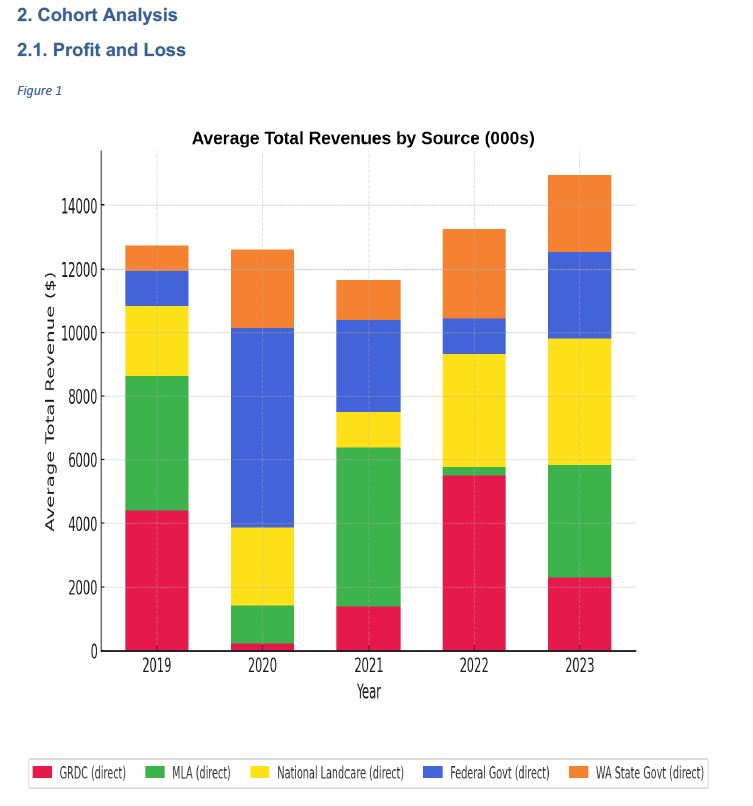
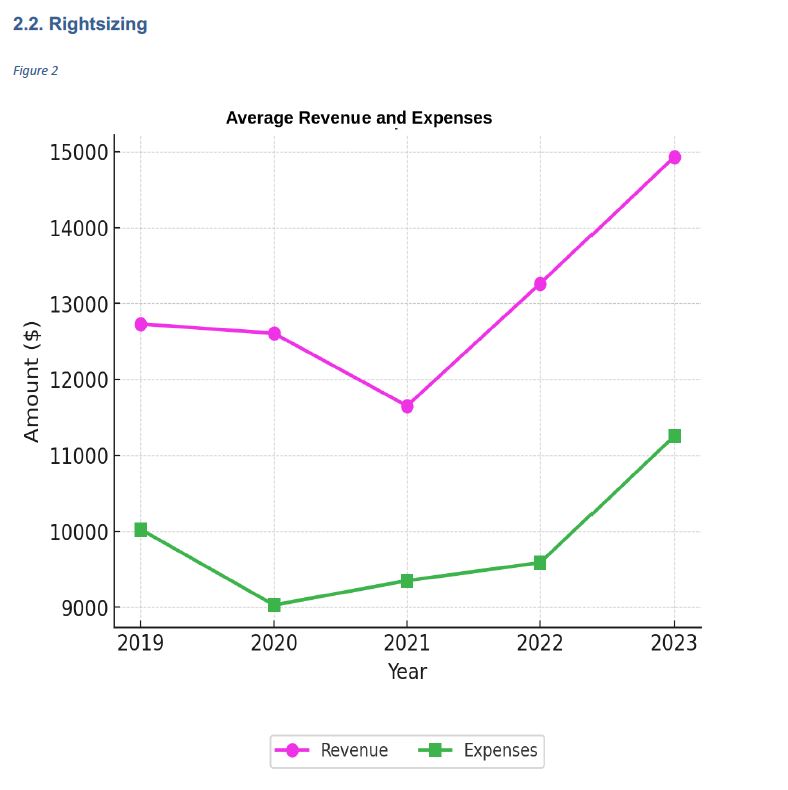
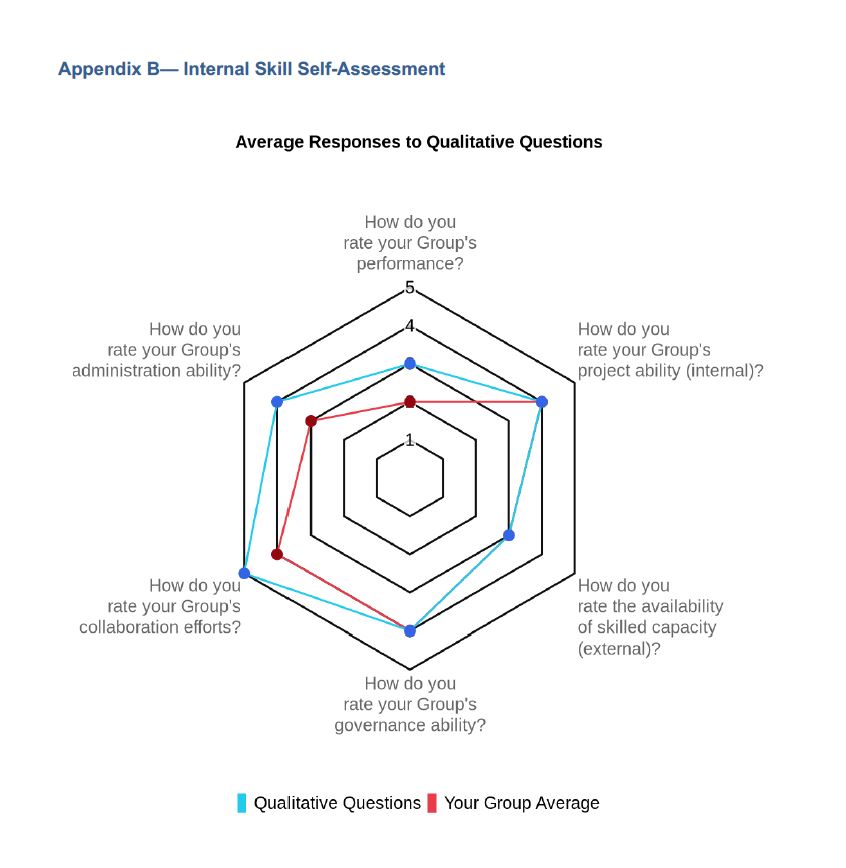
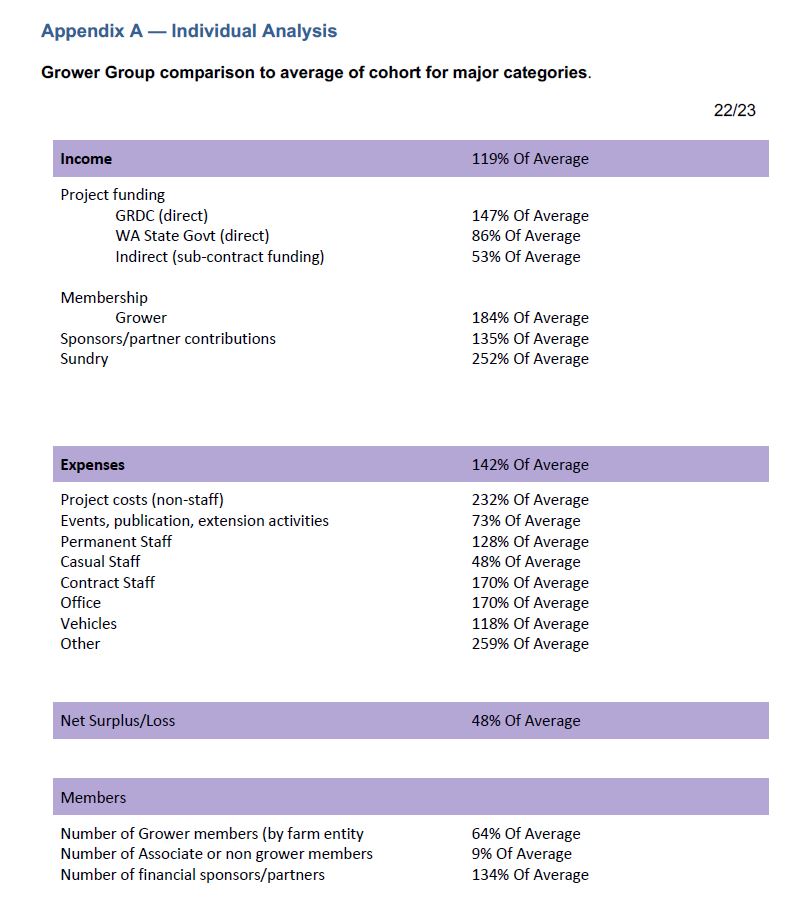
App Development Phases
Phase 1 – SEPWA, Facey Group and LIEBE were involved in Phase 1 pilot from June – September 2021 testing the prototype diagnostic process.
Phase 2 – WMG, ASHEEP and Stirlings to Coast Farmers were involved in Phase 2 to more rigorously test the process and gather more data to inform the development of a digital tool app.
Launch – the finished app was launched at the 2022 AGM for use by the voting grower groups of the GGA network.
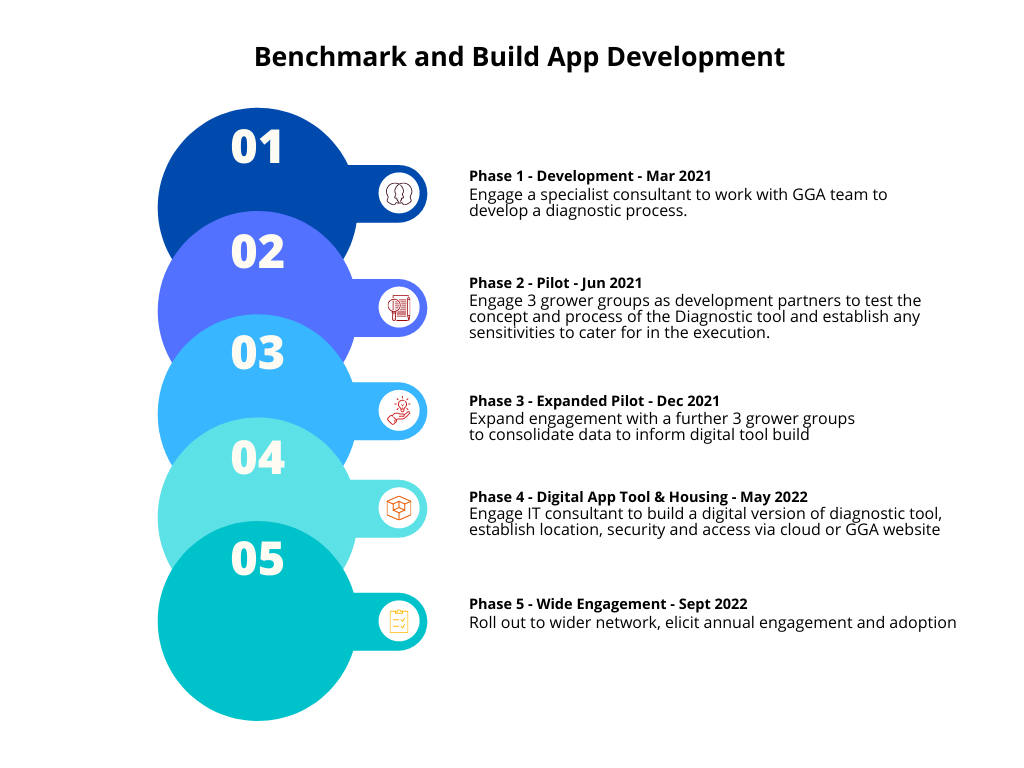
GGA Contact
Enquiries to Kallista Bolton at GGA.

